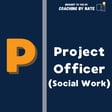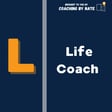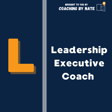Become a Creator today!Start creating today - Share your story with the world!
Start for free
00:00:00
00:00:01

Teacher | Andrew's Journey From Career Changes to Classroom Challenges
Ever wondered what it’s really like to be a primary school teacher? In this episode of the Z Jobs Podcast, Andrew opens up about his 14-year journey—from pivoting careers after a PR degree to managing parent expectations and finding joy in the chaos of the classroom. We discuss the realities of teacher workload, the importance of mentorship, and why building relationships with students is the ultimate reward. Whether you’re an aspiring educator or just love a good career story, Andrew’s honesty and humour will leave you inspired.
Transcript
Intro
Andrew's Career Journey
00:00:35
Nate
Perfect. Andrew, thank you for joining us on to Z Jobs podcast.
00:00:40
Andrew
Thanks for having me, Nathan.
00:00:40
Nate
No problem. Let's dive straight in. Tell me about what you're doing and what what got you made it motivated.
00:00:47
Andrew
So I'm a primary school teacher and I have been for the past 14 years. It wasn't what I initially went into. So when I finished secondary school, I actually did a Bachelor of Communication, majoring in public relations.
00:01:02
Andrew
And when I left university, I found it really challenging to break into that field. And I didn't have a clear understanding of what the career options were for me.
Teaching Placements and Preferences
00:01:13
Andrew
um i enjoyed the i enjoyed the course, but I didn't feel like it left me adequately prepared for the industry and the world. So I kind of like fluffed around for a couple of years doing, I did real estate for a year and then I did some like like admins admin work for another year.
00:01:30
Nate
You need to. Hmm. but
00:01:34
Andrew
And during that time, I started thinking about what I wanted to do next career-wise. And I'd always had an interest in education because both of my parents were primary school teachers.
00:01:44
Andrew
So growing up, I would hear their stories. I would often visit their schools. And I was like, hey, I think that's something that I i would be interested in doing myself. So I went back to university.
00:01:56
Andrew
And because I'd already done my three-year undergrad, i did a two-year Bachelor of Education accelerated program. So it was quite a unique course. There was only about 20 of us in the course.
00:02:08
Andrew
um We did a large amount of placement to kind of make up for the fact that we hadn't done the first two years, ah which was excellent preparation for what the workforce would be like.
00:02:19
Andrew
So we we got to spend a lot of time with our mentor teachers, with our classes, with each other. So we were always able to collaborate as a group, um which was fantastic. it was like we were our own little staff.
00:02:33
Andrew
And then after those two years, i applied for a graduate position at my first school, which I stayed at for 13 years. um i mainly taught the middle years, so years two, three, four.
00:02:49
Andrew
I did teach one year in prep, which is the first year of school, and that was extremely challenging. And I absolutely take my hats off to people who have that down pat because it's really, really challenging.
00:03:00
Andrew
um And then this year I started at a new school um and I'm in year six. So it's great. I'm i'm at the um at the top end of the school and I'm really enjoying it. You can have some great conversations.
00:03:12
Andrew
ah You can get into some really good class novels and some writing and some maths. And, yeah, it's good.
00:03:19
Nate
How did you decide on the age group? So like being a teacher is one thing, but then how do you know what what age group that's going to be best suited to your, I suppose your personality and and style?
00:03:29
Andrew
Yeah, and I think that's ah that's a great question. I think as well you don't know that until you start doing your placement. um My placements were, but more both of my primary placements were actually in year four and that was a year level that I thought, oh, yeah, that's a good year level.
00:03:36
Nate
Hmm.
00:03:45
Andrew
But then when I started was at my new school, I was just placed in a year level, as in where is there a gap? So I taught year two for three years and I didn't really know any different and I enjoyed it.
00:04:00
Andrew
And then after that, Well, actually, after my first year, you're able to put in preferences and the school will say, give us three preferences. do um So you would put down um year four is my first preference, year three is my second preference, and year two is my third preference.
00:04:18
Andrew
And they would factor that in as well as where they need people. balancing out experience in the teams as well. um I know a few years ago, just after the COVID lockdown, I had a year four class and they were a really special group of kids and I was hoping to take them up to year five um because we hadn't really got that full year together, but then they needed someone to be the team leader in year three. So I took on that role.
00:04:41
Andrew
So sometimes it's less about where you think is a good fit for you and more about where the school thinks is a good fit for you.
Mentorship in Teaching
00:04:50
Nate
And you mentioned um about having a mentor, a mentor teacher. Is that ah something that you get allocated as during a placement or do you have to go find a mentor? How does that work?
00:05:01
Andrew
Yeah, so it's allocated to you um And I know now that i'm in the that I am a teacher that they ask you, are you willing to have a student teacher or a pre-service teacher?
00:05:14
Andrew
So it's people at the school who have put up their hand and said, yep, I feel like I'm experienced enough and I have the capacity to have a student teacher. And then they assign you to that person. I had fantastic mentor teachers actually.
00:05:27
Andrew
ah Both of them in the year four primary classrooms, I was in, they were really passionate, really dedicated, but also very realistic about how schools are run and what's possible and how things go. so I learn a lot from them and soon i will be a mentor teacher myself actually.
00:05:44
Andrew
so i um yeah I will have my own student teacher um to guide and mould and assist and support.
00:05:52
Nate
It's great circle of life, your chance to give back again.
00:05:53
Andrew
Exactly.
00:05:54
Nate
That's awesome.
00:05:56
Andrew
Yep.
Pathways to Teaching
00:05:57
Nate
So you're so you did an undergraduate degree, then you did your accelerated degree.
00:06:02
Andrew
ah sir
00:06:03
Nate
Your primary school, does it have to be through university? Or is there a type path or a different college path for primary school?
00:06:09
Andrew
there has It has to be through university, but there are many avenues to get there. So a lot of people with teaching, they'll do even a partial undergrad, like maybe a year or two, and then they'll cross over and do a graduate diploma of education and things like that.
00:06:27
Andrew
I think with primary teaching the minimum post-grad course you can do is two years, whereas with secondary teaching it's one year because that's more kind of focused on the subjects and your learning. So say if you have done a degree in science or biology or maths, you've got a really strong foundation of that subject.
00:06:49
Andrew
So then in that postgraduate one-year course, you're just kind of learning what it's like to apply those skills into a classroom.
00:06:56
Nate
Mm-hmm.
00:06:56
Andrew
Whereas with primary teaching, you're teaching such a range of things. You're, you know, reading, writing, maths, inquiry. So do you need the two years to kind of get your head around that.
00:07:08
Andrew
um So, yeah, it needs to be a university qualification, but there are different avenues and options for how that can look.
Communicating with Parents
00:07:16
Nate
And what about, I always wondered, so what's the split? So obviously say you're there, like your passion, well, I'm making assumption, you get into it because you're passionate about taking children, right?
00:07:23
Andrew
Yeah.
00:07:25
Nate
But then you also have to manage the parents and parent expectation. what's Can you talk me through what that sort of looks and feels like?
00:07:31
Andrew
Yeah, absolutely. Like, I feel... comfortable and confident communicating with parents. That's not how all teachers feel because it can be challenging.
00:07:42
Andrew
um As well, I think some people get into teaching because they really enjoy interacting with children, um and I do as well, but they don't necessarily have that same skillset to communicate with adults, especially when the adults may be upset about how a behaviour was managed or academic results that aren't meeting their expectations.
00:08:04
Andrew
So there's lots of um opportunities for parent communication and it is strongly encouraged by the Department of Education to have regular communication with parents. So say if they're if a child is absent from school for two consecutive days without any reason to the school, we will contact the parents and have that conversation. And sometimes those conversations are really valuable because you might find out that there is so a health thing, an underlying health thing going on, or there is a family dynamic or a change in the household that we needed to be aware of.
00:08:34
Andrew
So I've always had a very open door policy with parents. Like I like to go out into the yard after school and just make myself known so that don't think that, you know, It's just locked away and that they're not part of it. i think that's the most important thing is to include parents in it. And there's meant to be that thing that it is, there's three people here. There's the classroom teacher, there's the student, and then there's their family. And if those three people work together,
00:09:01
Andrew
um communication-wise, harmoniously, then that's that's what is going to get the best results for the child. And it's going to make the teacher's life a lot easier as well, getting parents, like, side, because then if there is behaviour or an academic concern and they hear from you, they're like, oh yeah, I'm...
00:09:18
Andrew
I know, Andrew, I can talk about that rather than it being someone who they don't have much communication with. And all of a sudden they're calling up complaining about a behavior or concerned about an academic result. And you think, well, I don't even know you. So you have to, it's all about building relationships, not only with the students and the fellow staff, but with their families as well.
00:09:40
Nate
Yeah, it's just one of those things that it must be a tough dynamic. How do do they... So if you've people listening, they want to be a teacher. We've just scared them now because they've got to do all this.
00:09:49
Andrew
Yeah.
00:09:51
Nate
Is there... Did you find the training the training was sufficient ah through your studies or through your um through your placements to learn the skill set for that sort of communication and dynamic?
00:10:02
Nate
Yeah.
00:10:03
Andrew
Probably not in terms of communicating with parents because during placement, the mentor teacher would be the one that's communicating with the families. um In my second primary school placement, i was actually in a Steiner stream.
00:10:17
Andrew
And the way that Steiner education works is that it is very community and family focused. So the same group of children are with each other and their teacher from foundation or prep up until year six.
00:10:30
Nate
Whoa.
00:10:30
Andrew
So they build a really close relationship with those families and the families are very much involved in the running of the school and the curriculum and things. So that gave me a bit of an insight into what it's like to have frequent communication with parents because there was lots of after-school events and things like that.
00:10:49
Andrew
And honestly, it does it can sound a little bit scary, but honestly, it's really lovely when you get to know the families And you get to kind of understand, ah okay, that has kind of shaped the way the student is.
00:11:02
Andrew
And you can also empathise as well that some of the children come from really complex, challenging home situations. And it makes you understand why they may be the way they are at school.
00:11:13
Andrew
Like it's and it's not necessarily a neurodiversity, it's not necessarily yeah academic barrier, but their home lives can be quite complex. I've worked in quite low socioeconomic areas where um education isn't always a priority because putting food on the table and survival survival mode is what's going on.
00:11:36
Andrew
So I think just having an understanding that like and a flexibility that not all families are the same and that the communication you have from home is not the same and maybe the the homework you send home or the take-home reading you send home are those library books. Yeah.
00:11:53
Andrew
might not be returned for the same for every student. It's just having an understanding of that. um i would' yeah I wouldn't say that placement really prepares you for it. It's definitely baptism by fire when you when you start.
Adapting Teaching Plans
00:12:06
Andrew
But when you are a graduate teacher at a school, you will have a mentor there as well. And that mentor will kind of guide you through um, appropriate communication with families.
00:12:19
Andrew
cause often i know at my previous school, we didn't email families. Everything was either an in-person conversation or an over the telephone. Whereas at my new school in my current setting, um, you do email families and it's just dependent on what the school feels is appropriate, what the parents feel is okay.
00:12:38
Andrew
And, um, It is dependent on the the demographics and the and the the the parent community in the area.
00:12:48
Nate
Okay, after saying all that, what is the best thing? What gets you out of bed? What is the one thing that you love about this job?
00:12:54
Andrew
just hanging out with the kids. Like it is, they they say the most funniest stuff. um It is like, there's not many jobs where you get to have fun a lot of the day.
00:13:07
Andrew
And I really feel like I get to do that. Like we spent... two hours today practicing T-ball for inter-school sport next term, which was great.
00:13:16
Nate
Yeah.
00:13:16
Andrew
And I had one one of the students was the coach because they definitely know more than I do about T-ball. I have not played it since I was a primary school student myself. And um they were great. Just seeing like them build up their skill sets, have their own communications.
00:13:31
Andrew
um i love rap i love reading them I love reading reading books to them and hearing them analyse them and focus on the characters. I love reading their writing. They're doing memoirs at the moment, so they're focusing on um how they've grown and changed over time.
00:13:47
Andrew
So I love all that kind of stuff. Maths was hard for me growing up. like I found maths challenging, so I like to make maths easy for my easy for my students. Not easy work, but easy to understand. I like to really break it down for them because I felt that a lot of the time it was...
00:14:03
Andrew
why don't you understand this? You need to just get it. And I think education's come a long way since the 1990s and we have a lot more differentiation. We have a lot more um understanding that we need to have like in a low for high ceiling with tasks.
00:14:19
Andrew
And yeah, so that's definitely my favorite thing is like, I guess making education fun. I had a pretty fun time when I was at school and I i like to replicate that for my students.
00:14:30
Nate
That's fantastic. i love that. So yeah, you can you can replicate the things that you loved at school and then you have the yeah you have the ability to to to then address the challenges that you faced at school. I like that.
00:14:40
Andrew
Absolutely. i have the retrospect to go, oh what were the things that I kind of enjoyed and i remember from primary school? And I can focus on those things. And it is hard sometimes because you have competing demands from either the school or the Department of Education, but having your own class for the day, you do have that flexibility to go, all right, let's have a bit of a brain break or let's watch something and discuss it Let's read something and discuss it.
00:15:07
Andrew
It's not always just, you know, reading, writing, arithmetic.
00:15:11
Nate
Right, so you do have, ah so that you sort of got the the set material that needs to be covered, I suppose, each term and then within that you have a bit of flexibility on how you deliver it and
Workload and Teacher Shortage
00:15:21
Andrew
Absolutely. Yeah, absolutely. And, like, we... i think each school is different with the level of flexibility that they allow their staff. um At my previous school, a guaranteed and viable curriculum, which means consistency across all classes, was a huge priority.
00:15:22
Nate
what your results are each day.
00:15:39
Andrew
so um there wasn't as much flexibility in how you could deliver content and assess assess how the children were going, whereas at my current school there is a lot more flexibility that um as a team, as a team of teachers, you can decide what's the best approach for this group of children that we have and um you can go from there. And I'm enjoying that. I'm enjoying having a bit more autonomy in how I deliver the curriculum and how I assess results as well.
00:16:07
Nate
That's great. And what what's your biggest challenge? or Is it part of the career that you absolutely hate and wish wasn't there or something you faced that was challenging?
00:16:12
Andrew
Definitely... Yeah, it's definitely workload. Like, that's just like the... Because um we spend most of our day...
00:16:26
Andrew
um with the kids in the classroom, we can't do the work that's required for that. So each lesson requires pre a level of preparation.
00:16:39
Andrew
So what will the focus of the lesson be? What will the focus question be? How will I launch the lesson? um How will I assist the children while they're exploring the task? ah How will we summarise it in a discussion?
00:16:53
Andrew
So that's that's all great, but it requires preparation. So that means... either of an evening um or the weekend or in the morning where we're preparing those lessons, we're all correcting work and things like that.
00:17:06
Andrew
And it's not that I hate preparing and doing it, but I don't love doing it in my own time. Like i' it's always outside of my hours of work. Like I always do my hours of my required 7.6 hours of teaching, but all the other work, the preparation and the assessment,
00:17:26
Andrew
Even the, you know, the organising, decorating, cleaning up for the classroom, that's all done outside of hours. And that's something that the union is trying to alleviate by um providing us less face-to-face time and more preparation time. But for that, you need staffing.
00:17:43
Andrew
And in Australia at the moment, we have a national teacher shortage. So um there isn't the human resources required. to kind of cover that. But yeah, definitely workload. And I think most teachers would say that.
00:17:57
Andrew
um And it hasn't hasn't really been addressed and and isn't really getting any better.
Classroom Dynamics and Inquiry-Based Learning
00:18:04
Nate
I've done um currently living in Hong Kong and I've done my I've been doing some teaching online myself. I find um obviously obviously very different to the teaching you're doing. But what I found was I would spend time preparing for a particular class and then then my my client would log in and they're like no actually this is this is the this is my urgent thing today i don't want that so suddenly you've got to pivot and and your whole day has changed uh has your do you have that or you got sort of stability like there sort of i've done this prep i know it's going to pay off or is it still a bit up and down
00:18:40
Andrew
Yeah, we definitely do have that where you plan something and you think that's going to be a brilliant way to explain that to the students. They're going to get a lot out of it. And sometimes you'll start like launching a lesson and then you'll just get like blank faces back and you go, oh, they don't have the required knowledge to do what we're doing.
00:18:56
Nate
Thank you.
00:18:59
Andrew
And you have to go back. you might You might be introducing a maths concept and you think, oh, yeah, but at this age and looking at the academic results, they should be able to take that in. And then you start launching it and they're like, so you have to pivot to something else.
00:19:15
Andrew
um I know that with our, I'm at a school that's very inquiry focused, which means that ah before each inquiry topic, we get questions from students and they guide our inquiry. Yeah.
00:19:27
Andrew
So that's very, it's very student led and it's very student focused. So that helps. But even then, sometimes something that you, that has come from the students and that you have planned doesn't quite play out, but you think there's always tomorrow, you know, like you, you go, okay, that didn't work out this lesson. That didn't work out this day. What are we going to do tomorrow?
00:19:49
Andrew
And yeah, sometimes it is a little bit disappointing when something that you've spent time planning and organizing doesn't go to doesn't go to plan but really at the end of the day you have to have that flexibility because they're kids and they're human beings and things change and sometimes
Handling Sensitive Topics
00:20:05
Andrew
as well like you might think oh yep this lesson's going to go great and then something happens at lunch or recess time and there's a big blow up and you have to just scrap that and change it so there definitely is a huge amount of um flexibility involved in in teaching and that can be great but it can also be daunting at times.
00:20:25
Nate
Yeah, I don't and put you on the spot. I don't suppose suppose you have any any questions that have popped up in class that have just really stumped you. Has has anyone given you a question that's given you one, oh, I don't know what to say here.
00:20:40
Andrew
um Sometimes I think questions are like that. Like I'm very open with my like progressive views to do with like um sexuality, gender diversity, um race, like the effects of colonialism, all that kind of stuff.
00:20:58
Andrew
um And I think sometimes I need to be careful how I answer things in case it is in opposition to maybe what their families say.
00:21:09
Andrew
Like we've had issues um in the past where we did a lesson on our Sorry Day, like apologising to Aboriginal people for the taking of their land. And we've had parents come in before that have said, my kid's not saying sorry.
00:21:24
Andrew
um They haven't done nothing and you and you have to really like find a way to navigate that. So sometimes it's like it could be a question from a child or it could be just a situation where you have to handle it a little bit delicately because even though schools are um motivators of change and motivators of thinking and stuff.
00:21:44
Andrew
You don't want to annoy people or or make people think that ah what what their family thinks is wrong or or how their family acts is wrong. So you have to be a little bit diplomatic in the way that you host discussions whilst also trying to make considered curious individuals that are going to be ready for this world.
Quickest Pathway to Teaching
00:22:07
Andrew
So there can be a bit of a balancing act there.
00:22:10
Nate
Sounds like there's a lot of balancing happening as a teacher.
00:22:12
Andrew
There is. Yeah.
00:22:14
Nate
So if someone's listening, you had a bit of a roundabout way, so you did perhaps a longer journey to become a teacher. If you were fast track it, what be the quickest way? want to be a teacher. Get me there now.
00:22:25
Nate
What's the quickest way, do you think?
00:22:26
Andrew
Yeah. So if you, so when you're in your final year of study in secondary school, you'd be applying for a four year bachelor of um education at one of the universities.
00:22:38
Andrew
And that's the quickest way to do it. You would be starting your career career at about 22 you'd be, you'd be in a, in a classroom within four years, um getting, getting paid and working in a team and things like that.
00:22:53
Andrew
Yeah.
00:22:55
Nate
Just thinking is that how would you recommend giving, like I think I want to be a teacher, but I'm not sure I can handle a room full of children or handle that environment.
00:22:56
Andrew
Yeah. ah
00:23:06
Andrew
Yeah.
00:23:06
Nate
can you think of a way to test that out before you sign up for something that's so big?
00:23:08
Andrew
Yeah. I honestly think the best way to do it would be to be an education support person. So they are people who work in schools. They're not qualified teachers.
00:23:19
Andrew
um They've done sometimes maybe a ah certificate in something or a TAFE course in something, sometimes not even, and they're getting to work with some of the most like complex challenging students in the school and experiencing how does a school run, how does a classroom run without having the responsibility of their own class at the start.
00:23:39
Andrew
We've actually got a teacher this year who he started as an education support person and just this year he's doing his permission to teach. So while he is teaching, he's also studying to be a teacher and getting paid, which is great.
00:23:53
Nate
Thank you.
00:23:53
Andrew
And I think the being an education support officer beforehand gave him the insight Do I actually want to have my own class? Do I want to be a teacher? He's decided yes, so he's putting those things in place.
00:24:04
Andrew
But I think that's the best way to see without actually doing a four-year degree and the placement that comes with that.
Professional Development
00:24:10
Andrew
I think being an an ES in ah in a school gives you a really good insight into how schools operate, the behaviour of the children, and you get to decide, hmm,
00:24:20
Andrew
is this ah is this is this for me? Is this something I can do? Because it is a is a unique profession in the sense that not many people have 20 clients in front of them at a given time um with you know varying personalities and academic after levels. So, yeah, I think being an education support officer is a really excellent way to um see what it's like.
00:24:41
Nate
Yeah, that's great advice. i really like that. I did, um when I was applying to do some teaching work in Hong Kong, one of the options was to be a native English speaker in a classroom with children.
00:24:48
Andrew
Yeah.
00:24:51
Nate
and
00:24:51
Andrew
Yeah.
00:24:52
Nate
During the interview process, they actually showed us a video of a classroom and just the children going crazy. After that, was like, no, I think I'm suited to online one-to-one teaching. thank
00:25:02
Andrew
Yeah.
00:25:02
Nate
Thank you, though. that's I think you get that exposure early.
00:25:04
Andrew
Absolutely.
00:25:07
Andrew
One of the students actually said today, was like, ah she's like, teachers are really good at multitasking. I said, oh, we try to be. And she goes, you just answered three questions then from three different people. And I was like, yeah, fair. We just kind of do it. Like where were we're handing something out. We're answering a question about something. We're going somewhere. So there's always lots happening at one time, um which can be challenging. Absolutely. Especially when um the kids are in a bit of a hectic mood.
00:25:35
Nate
can i only imagine and what about resources any podcasts books tv shows anything that you've you've thought oh that really helped me on my journey or i wish i had that at the start of my journey
00:25:36
Andrew
Mm-hmm.
00:25:47
Andrew
Yeah. um I've done some, so through the education union, I've done some free behaviour management courses and they have been helpful. So that's actually just called PD in the pub. And you go with some other teachers after hours and you hear from someone who is an experienced educator who's got some really great behaviour management strategies.
00:26:06
Andrew
And that's been really helpful for me. Also some professional learning on neurodiverse children as well, which has become increasingly important since like there's more diagnoses.
00:26:16
Andrew
um Mental health is a big focus post-COVID lockdowns. So um having some professional learning in how to manage, support, assist neurodiverse children and how to manage behaviour generally, they've been the really great professional learning that I've done.
00:26:35
Andrew
Less the academic stuff and more about... the people component of it, how to manage the people because if you don't build those relationships and manage those people, their learning won't happen, the learning won't come.
00:26:47
Andrew
So you have to understand how they think and how people and children who have behavioural concerns or neurodiversities, if you understand how they tick, how they work, then the learning can happen. So that those have been the best professional learning opportunities I've done.
00:27:06
Nate
Yeah. And I suppose, so it's just looking at, looking at what your course content covered, what's your placements have covered. And then sort i suppose a self-assessment, where do I still feel nervous and and start to look for resources to cover that?
00:27:15
Andrew
Yeah. Yep. Absolutely. And there is there is lots of professional learning offered. It's just the the only challenging part of it is it's often outside of hours.
00:27:28
Andrew
So it may be a webinar or may be a visit ah visit to a ah cafe or may be something like that, but often it's done outside of hours. Yeah. which can be challenging when you've already got the big workload, but you definitely have the um flexibility to do a bit of a self-assessment i think, what do I need?
00:27:46
Andrew
What do I need next for my teaching career? And there's lots of options out there, resources and professional learning.
00:27:51
Nate
Yeah.
00:27:53
Nate
Yeah.
Reflections and Motivations
00:27:55
Nate
All right. As we start to wrap up, last question, do you have a, do you have a quote or do you have a mantra or something you you tell yourself that gets you motivated or inspires you on a daily basis?
00:28:06
Andrew
Yeah, i always I heard this um funny kind of quote a few years ago about ah different teachers in different ah sectors and they said that primary school teachers love the kids.
00:28:18
Andrew
Like they they love working with the kids. They build up those really close relationships with the class that they have. High school teachers love their subject. So they're really passionate about either literature or mathematics or science and they can deliver that.
00:28:32
Andrew
and university teachers love themselves. So that was always a that was a bit bit a bit of a funny quote ah that I always think about and I reflect on that and think, yeah, like i I do be a primary school teacher for the kids and, yeah, if I had a real passion for a subject or a real skill in a subject, that would be great for secondary school.
00:28:52
Andrew
Yeah.
00:28:52
Nate
Yeah. Yeah. I like that. ah Fantastic. Andrew, thank you. It's been great hearing your journey. Thank you for joining us today. It's been, it's been great.
00:29:01
Andrew
No worries. Thanks, Nathan. See you later.
00:29:04
Nate
Bye.



















